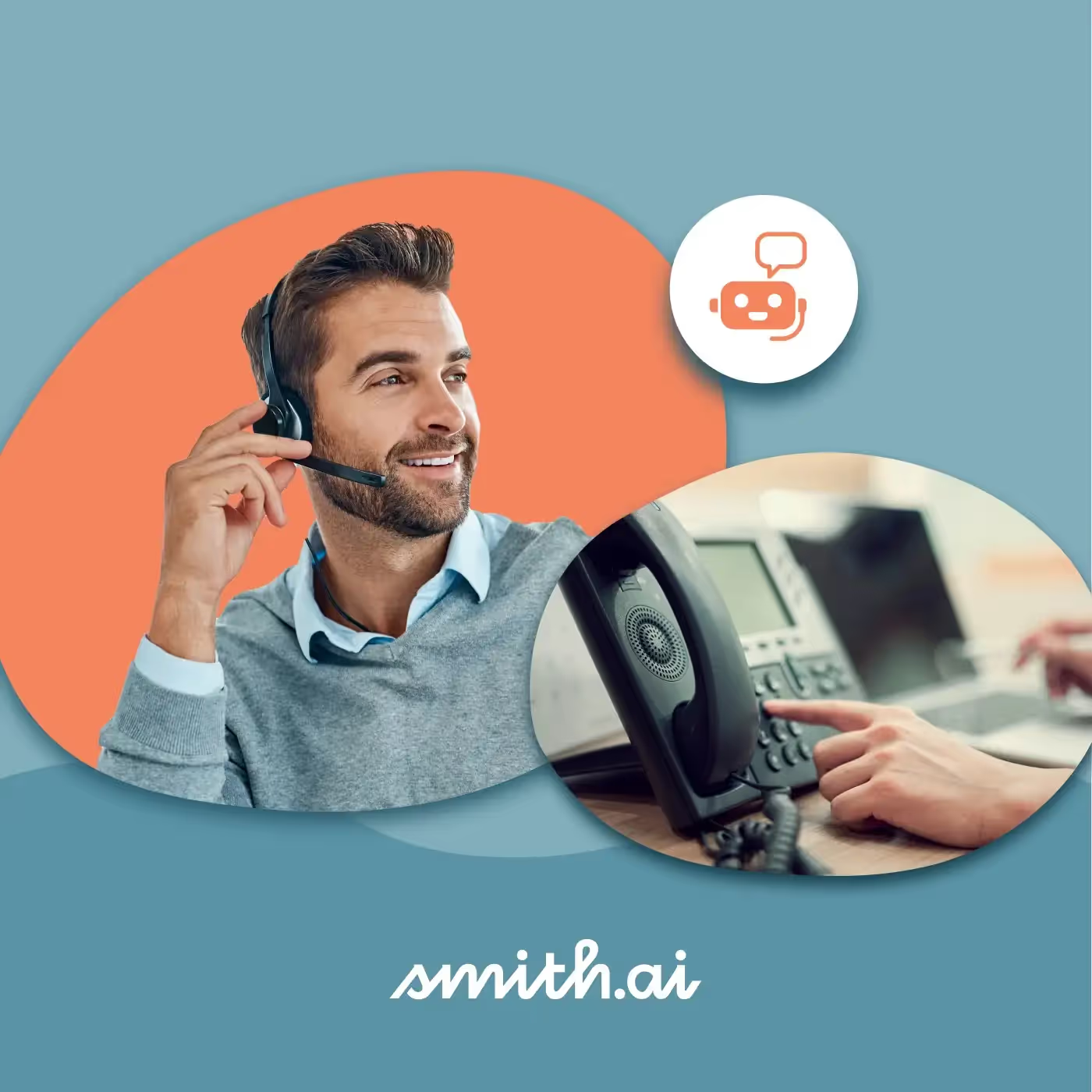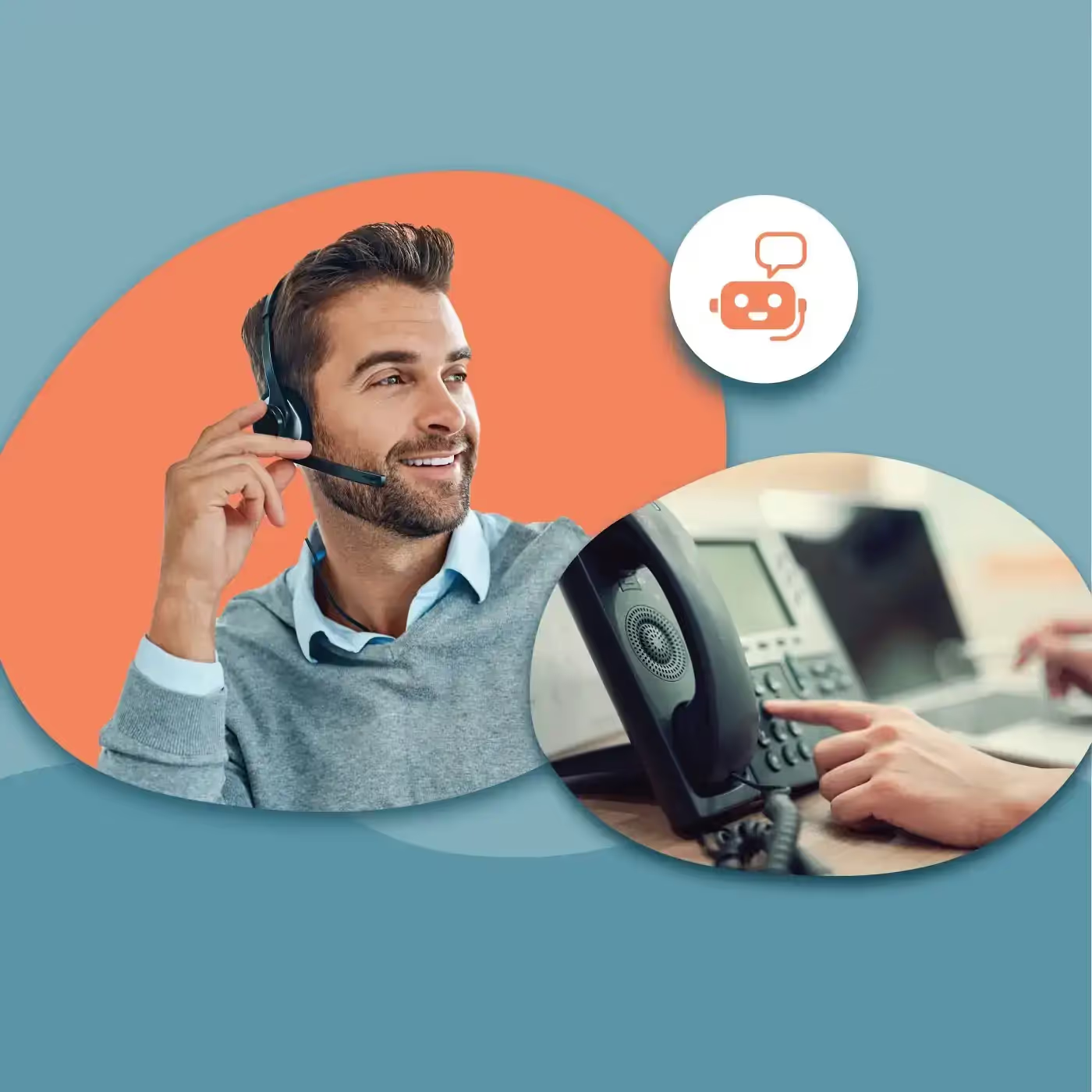Maximize Efficiency with Automated Virtual Receptionist Solutions for Small Businesses
Maximize Efficiency with Automated Virtual Receptionist Solutions for Small Businesses

The phone rings. And rings. And rings. Your hands are deep in client work, your teammate is on another call, and that potential customer on the other end of the line is about to hang up and dial your competitor. By tomorrow morning, they'll be signing a contract with someone else.
Meanwhile, that after-hours emergency call you missed last night? They found another service provider at 9 PM. That weekend inquiry about your premium package? They went with the company that actually answered.
These aren't just missed calls. They're missed opportunities, vanished revenue, and growth that never happened.
But what if your phone answered itself? Not with cold, robotic voicemail, but with an intelligent system that sounds natural, answers questions, schedules appointments, and makes your callers feel genuinely heard?
It's the automated virtual receptionist revolution happening right now.
The Magic Behind Automated Virtual Receptionists
Think of an automated virtual receptionist (AVR) as your business's digital front door. Unlike their human counterparts who need sleep and coffee breaks, AVRs use artificial intelligence to handle incoming calls, answer questions, and route callers to the right place without a human lifting a finger.
These AI-powered phone ninjas never sleep, never take sick days, and never miss a call. They're always cheerful, always professional, and never tired of explaining your holiday hours for the fifteenth time that day.
Modern AVRs do way more than just answer phones:
- They schedule appointments by syncing with your calendar
- They provide consistent service whether it's 2 PM or 2 AM
- They seamlessly connect with your existing business tools
- They capture critical information from every caller
It's like having a super-efficient receptionist who works for pennies on the dollar compared to hiring someone full-time.
The Magic Behind Automated Virtual Receptionists
Remember those clunky automated phone systems that had you pressing endless numbers and screaming "REPRESENTATIVE!" into your phone? Today's AVRs are nothing like that nightmare.
24/7 Availability: When Sleep Is For The Weak
Traditional receptionists need things like "weekends" and "sleep." Your automated virtual receptionist is the insomnia-riddled superhero of your business communications.
For small businesses running on skeleton crews, this round-the-clock coverage is game-changing.
By providing a 24/7 live answering service, AVRs ensure your business is always accessible.
Smart Routing: Your Calls Go Where They Belong
Modern AVRs are basically traffic controllers for your incoming calls. They're eerily good at getting people where they need to go, whether it’s routing a call to a salesperson so customers can get more information on a service or an existing customer with an emergency.
Appointment Scheduling Without the Headaches
For service businesses, scheduling is everything. Double-booking is a special kind of hell that AVRs help you avoid:
- They check your real-time availability and book appointments
- They send confirmation texts and reminders
- They handle rescheduling with the cool efficiency of someone who doesn't get annoyed at last-minute changes
A dental practice network slashed their no-show rate by 35% after implementing an AI appointment scheduling system. Their front desk staff finally had time to actually talk to the patients in front of them instead of being permanently glued to the phone.
The Tech That Makes It All Work
Behind every great AVR is some seriously impressive tech. These aren't your grandmother's recorded messages. They're sophisticated systems creating conversations that feel remarkably human.
Natural Language Processing: When Your Phone System Actually Understands You
The real breakthrough with modern AVRs is their use of Natural Language Processing. They actually understand what you're saying, not just the words, but the meaning behind them.
When someone calls and says, "I need to reschedule my haircut," the system doesn't just hear noise. It identifies the intent (rescheduling) and the service type (haircut). It's like having a receptionist who's actually listening, not just waiting for their turn to speak.
These systems leverage conversational AI to create natural interactions with callers.
Speech Recognition and Voice Technology
Two crucial technologies make conversations with AVRs feel natural:
- Speech recognition turns your caller's words into text the system can understand, handling different accents and background noise.
- Text-to-Speech technology converts the system's responses into surprisingly human-sounding voice. Gone are the robotic voices of yesteryear.
Many callers don't realize they're talking to an AI until several minutes into the conversation.
How AVRs Stack Up Against Other Solutions
Let's break down how automated virtual receptionists stack up against other options.
AVRs vs. Live Virtual Receptionists: Robots or Humans?
Live virtual receptionists are actual humans who answer your calls remotely. Services like Smith.ai provide this personalized touch. While AVRs are AI-powered systems, each has its strengths:
- Cost structure: AVRs typically charge a flat monthly fee regardless of call volume. Live virtual receptionists often charge by the minute.
- Call handling: AVRs can field unlimited simultaneous calls. Live receptionists can only handle one call at a time.
- The human touch: Live receptionists provide a personal touch that matters for complex or emotional situations.
- Availability: Your AVR doesn't call in sick or take vacation days to Cancun.
AVRs vs. Traditional IVR Systems
Remember those maddening "Press 1 for sales, press 2 to have your soul slowly crushed" systems? Modern AVRs have evolved far beyond those primitive ancestors:
- Conversational ability: Old-school IVRs force callers through rigid menu trees. Modern AVRs actually have conversations.
- Caller satisfaction: Many callers hang up when faced with traditional automated systems. Modern conversational AVRs don't make you want to throw your phone across the room.
- Personalization: Some AVRs have a database of information on returning callers and can personalize the experience based on their history with your business.
Many businesses find that a mix of solutions works best, automated systems handling routine inquiries with human support available for more complex situations.
The Business Case For An Automated Virtual Receptionist
Let's talk money. After all, that's what business decisions ultimately come down to.
The Financial Upside
The numbers don't lie. Traditional receptionists typically cost $3,397/month when you factor in salary, benefits, training, and office space. Meanwhile, virtual receptionist services range from just $200–$650 per month.
Customer Experience: No More "Please Hold" Music From The 80s
Let's face it, customers hate waiting on hold. They hate being sent to voicemail. They hate calling during business hours only to find out you're closed for an impromptu staff meeting.
AVRs eliminate these frustrations by being available 24/7, handling multiple calls simultaneously, and providing consistent service regardless of when someone calls.
Every caller gets the same professional experience whether they call at 9 AM or 9 PM, during a quiet period or your busiest rush.
Who's Using AVRs? Industry Snapshots
Different industries face unique communication challenges. Here's how automated virtual receptionists are making life easier across various sectors.
Small Businesses: Looking Big While Staying Lean
For small businesses, resources are tight and every advantage matters:
- 24/7 availability without hiring night shift staff
- Professional image enhancement (nobody needs to know your "office" is actually your spare bedroom)
- Handling call spikes without panic
Professional Services: When Every Call Could Be Your Next Big Client
Law firms, accounting offices, and marketing agencies have specialized needs that AVRs address beautifully:
- Client confidentiality (no more conversations overheard in busy reception areas)
- Sophisticated appointment scheduling
- Lead qualification that separates tire-kickers from serious prospects
Getting It Right: Implementation Strategies
Having the right AVR is only half the battle. Implementing it effectively is where the magic happens.
Playing Well With Others: System Integration
For maximum efficiency, your AVR should connect seamlessly with your existing tech ecosystem:
- Sync with your CRM so customer information flows automatically
- Connect with your calendar for hassle-free scheduling
- Link to email systems for automated notifications
The Human Element
The best AVR implementations maintain the human element in customer service:
- Customize greetings and responses to reflect your unique brand personality
- Use customer data to personalize interactions
- Always provide an easy path to a human when needed
The goal isn't replacing human connection but enhancing it by freeing your team from repetitive tasks so they can focus on meaningful interactions.
The Future Is Calling: What's Next For AVRs
The world of automated virtual reception is evolving at breakneck speed. Here's what's coming around the corner:
- Advanced emotional intelligence for AI systems that recognize caller feelings
- Deeper integration with business applications beyond CRM and scheduling
- Hyper-personalization based on comprehensive caller profiles
- Enhanced analytics providing actionable business intelligence
For small and medium businesses, these advancements will democratize access to enterprise-level reception capabilities, leveling the playing field against larger competitors.
Stop Missing Calls, Start Growing Your Business
That 2 AM leak call could be your biggest job this month. That post-storm rush could fill your schedule for weeks. But only if someone answers the phone.
The AI Receptionist from Smith.ai never sleeps, never takes breaks, and never lets a potential customer slip away.
It captures leads while you focus on what you do best: delivering quality roofing services. It pre-qualifies prospects so your first conversation is already halfway to closing. It flags emergencies so you can prioritize the customers who need you most.
Your competitors are still missing calls. You're not. That's the Smith.ai difference.
Book a free consultation call with us. Get the AI Receptionist from Smith.ai today and turn every call into a potential job.
Take the faster path to growth. Get Smith.ai today.
Key Areas to Explore

Your submission has been received!











%20(1)%20(1).avif)


.svg)



